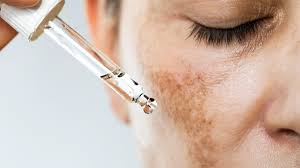Retinol is one of the most powerful and studied ingredients in skincare—renowned for its ability to reduce fine lines, smooth texture, and boost collagen. But for Muslim consumers, one important question arises:
👉 Is retinol halal?
The answer depends on where it comes from and how it’s processed. Here’s the breakdown you need to know.
What Is Retinol?
Retinol is a form of Vitamin A, part of the retinoid family. In skincare, it:
-
Stimulates collagen production
-
Speeds up cell turnover
-
Fades dark spots and evens tone
-
Reduces fine lines and wrinkles
It’s a gold-standard ingredient for anti-aging—but its halal status varies by source.
Sources of Retinol
1. Animal-Derived Retinol
-
Traditionally, retinol was sourced from animal liver or fish oils.
-
Common in pharmaceuticals and older formulations.
-
Halal status:
-
❌ If derived from pigs or non-halal animals → haram.
-
✅ If sourced from halal-slaughtered animals → permissible, but uncommon in cosmetics today.
-
2. Plant-Derived Retinol & Retinoids
-
Modern retinol for skincare is usually synthetic or plant-derived through biotech.
-
Made by fermenting or synthesizing Vitamin A from plant oils.
-
Halal status:
-
✅ Halal-friendly, vegan, and widely used in clean formulations.
-
3. Retinol Alternatives
-
Bakuchiol: A plant-based retinol alternative from the Psoralea corylifolia seed.
-
NovoRetin™: A biotech active from mastic tree resin, boosting natural retinoic acid levels.
-
Both are halal-friendly, non-animal derived, and gentler on sensitive skin.
Halal Considerations Beyond the Source
Even if the retinol itself is plant-based, halal compliance depends on:
-
Processing environment: No contamination with haram ingredients.
-
Carriers & stabilizers: Must be halal-friendly (no pork-derived gelatins or non-halal alcohols).
-
Certification: Verified by halal bodies (JAKIM, IFANCA, MUI) for full integrity.
At Purelab Care, every raw material, including retinol, undergoes third-party halal validation to ensure absolute clarity.
✅ Retinol & Halal: Frequently Asked Questions
1. Is all retinol halal?
No. Only plant-derived, synthetic, or halal-certified animal-derived retinol is permissible. Non-halal animal sources are haram.
2. Is retinol vegan?
Yes, if synthetic or plant-based. No, if derived from animal liver or fish oils.
3. Are retinol creams safe to use during pregnancy?
No. Most doctors advise avoiding retinoids (even topical) during pregnancy or breastfeeding.
4. Are retinol alternatives halal?
Yes. Bakuchiol and NovoRetin™ are plant- or biotech-derived and halal-friendly.
5. Does Purelab Care use halal retinol?
Yes. We use plant-based and biotech forms, verified through halal certification and third-party testing.
The Bottom Line
Retinol is one of skincare’s most effective actives, but its halal status depends on source and certification.
-
Haram: Pig-derived or non-halal animal sources.
-
Halal: Plant-based, synthetic, or halal-certified animal sources.
-
Best modern choice: Plant-based or biotech-derived retinol and alternatives.
At Purelab Care, we use only halal-verified, plant-derived retinol and next-gen alternatives—delivering results with no compromise on science or faith.



